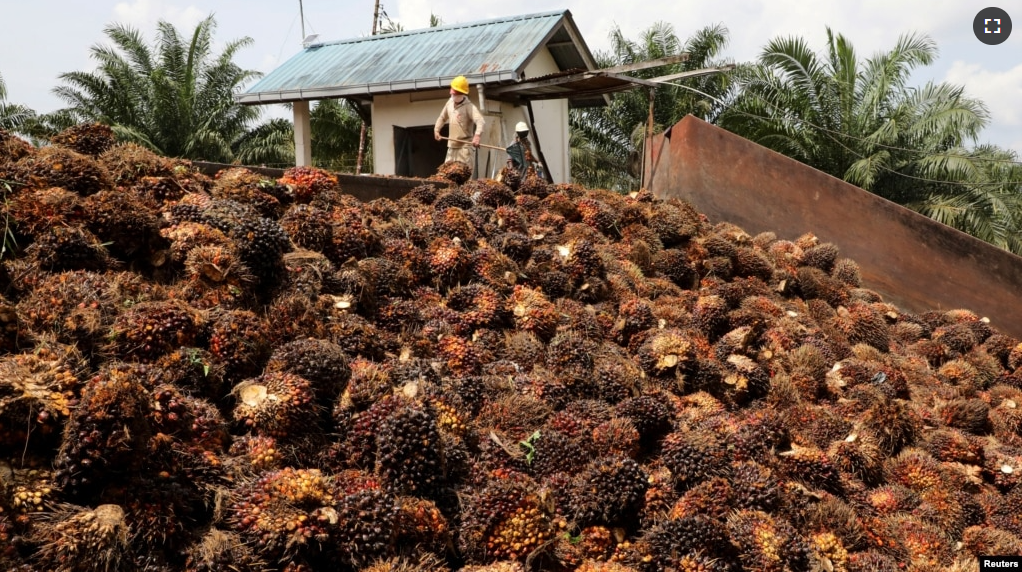Indonesia is the world’s biggest palm oil producer. But its “unpredictable” export policies may help Malaysia become the main supplier to India, the world’s top buyer of the product.
The oil comes from a palm tree that is only grown in the tropics. Palm oil is used primarily for cooking in developing countries. It is also used in food, beauty, and cleaning products.
Last month, Indonesia announced a ban on the sales of palm oil to other countries. President Joko Widodo said in a statement on April 27 that the ban would be lifted once local demand was met and prices lowered.
Malaysia is the world’s second-largest palm oil producer with less than half of Indonesia’s output. Shortly after Indonesia announced its ban, Malaysia positioned itself to become a major supplier of palm oil by cutting the export tax by half.
The trade group Solvent Extractors’ Association of India estimates that the two events could lower Indonesia’s share of the palm oil exports to India to 35 percent by October of 2022. Ten years ago, Indonesia’s market share was over 75 percent.
B.V. Mehta is a director of the Mumbai-based association. He said, “As Indonesia is not in the market, Malaysia is selling more, and at near record high prices.”
The association reports that during the last months of 2021 and first 4 months of this year, India bought 1.47 million tons of palm oil from Malaysia. And India has not even bought a million tons of palm oil from Indonesia. For the month of May, India continues to buy more palm oil from Malaysia and the country expects imports from Indonesia to fall further if the ban stays in place.
Despite the recent increase, Malaysian producers cannot totally replace palm oil suppliers from Indonesia. The country only produces 40 percent of what Indonesia does and it is facing a shortage of workers. Indian buyers, however, still want to deal with Malaysia and reduce its dependence on palm oil from Indonesia.
An Indian buyer who did not want to be named said, “Indonesia may lift the ban on exports sometime this month, but there is no guarantee it will not restrict exports again. Malaysia’s export policy is far more stable and that’s what we want.”
I’m Faith Pirlo.
Rajendra Jadhav and Mei Mei Chu reported this story for Reuters. Faith Pirlo adapted it for VOA Learning English.
_________________________________________________________________
Words in This Story
tropics – n. (pl.) parts of the world that are near the equator and, therefore, are usually warm
stable — adj. in a good state or condition that is not easily changed or likely to change
What do you think of Malaysia’s takeover of the palm oil industry?
